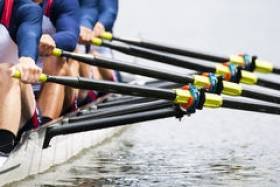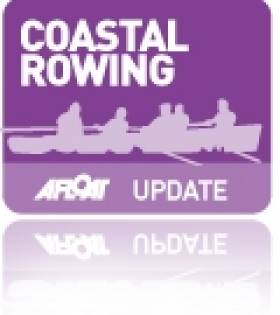Displaying items by tag: Oxford
Underdogs Cambridge Sweep Illness-Hit Oxford in 2024 Boat Race
Cambridge did the double over rivals Oxford in the annual Boat Race on Saturday (30 March), winning both the men’s and women’s races, as BBC News reports.
And there was an Irish connection with the winning men’s squad via Irish-Canadian rower Thomas Lynch, who is reading for a PhD in engineering at Hughes Hall.
The result adds to a triumphant era for Cambridge in the near 195-year rowing tradition, with the university winning five of the last six men’s races and seven straight in the women’s event.
This year, however, they were considered the underdogs in the 169th men’s race — making their domination of Oxford by three-and-a-half lengths all the more impressive.
The 2024 event was also dogged by warnings over elevated levels of E.coli in the River Thames which hosts the racecourse.
And the Oxford team’s number seven has excused their poor performance on Saturday as a result of illness from the poor water quality.
"It would be a lot nicer if there wasn't as much poo in the water,” Leonard Jenkins said. “It’s not to take away from Cambridge, as we may not have beaten them even if we were all on top form.”
BBC News has more on the story HERE.
Cambridge Master Conditions to Win Boat Race
#Rowing: Cambridge won the 2016 men’s Boat Race on the Thames today. Oxford started well, but in extremely difficult conditions, Cambridge established an early lead and kept a good rhythm down the long course, even as Oxford never gave up.
The women’s race was extraordinary. Oxford won, but in what Oxford women’s boat club president Maddy Badcott called “insane conditions”, Cambridge took in so much water that they almost sank. They somehow kept going and finished.
# COASTAL ROWING: The univsersities celebrated as the oldest rowing rivals will celebrate the oldest traditional regatta when crews drawn from Oxford and Cambridge alumni compete at Killarney Rowing Festival on Lough Lein on July 28th. The boat used will be the Killarney Six, a wooden boat with a fixed seat which was originally designed and built by Salters in Oxford. The event is part of ‘The Gathering’ and Queen Victoria’s stay in Killarney in 1861 will be marked. The Killarney Regatta itself is set for June 30th.






























































